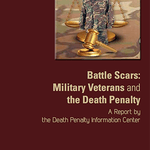In-Depth Reports
Latest
Apr 30, 2025
Immature Minds in a “Maturing Society”: Roper v. Simmons at 20
In 2005, in Roper v. Simmons, the United States Supreme Court held that the “Eighth and Fourteenth Amendments forbid imposition of the death penalty on offenders who were under the age of eighteen when their crimes were committed.” The decision, after the execution of twenty-two people who committed crimes under the age of 18 during the modern death penalty era, marked the end of the juvenile death penalty in the United States.
Read MoreJul 01, 2024
Lethal Election: How the U.S. Electoral Process Increases the Arbitrariness of the Death Penalty
Elected supreme court justices in Georgia, North Carolina, and Ohio are twice as likely to affirm death penalty cases during an election year than in any other year. This effect is statistically significant when controlling for the number of cases each year. Changing public opinion means that zealous support for the death penalty is no longer a litmus test for elected officials in many death penalty jurisdictions. Today’s elections feature viable candidates who criticize use…
Read MoreSep 15, 2020
Enduring Injustice: the Persistence of Racial Discrimination in the U.S. Death Penalty
(Washington, D.C.) As social movements pressure policymakers to redress injustices in the criminal legal system and to institute reforms to make the process more fair and equitable, the Death Penalty Information Center (DPIC) today released,“Enduring Injustice: the Persistence of Racial Discrimination in the U.S. Death Penalty.” This report provides an in-depth look at the historical role that race has played in the death penalty and details the pervasive role racial…
Read MoreNov 20, 2018
Behind the Curtain: Secrecy and the Death Penalty in the United States
During the past seven years, states have begun conducting executions with drugs and drug combinations that have never been tried before. They have done so behind an expanding veil of secrecy laws that shield the execution process from…
Read MoreNov 10, 2015
Battle Scars: Military Veterans and the Death Penalty
In many respects, veterans in the United States are again receiving the respect and gratitude they deserve for having risked their lives and served their country. Wounded soldiers are welcomed home, and their courage in starting a new and difficult journey in civilian life is rightly applauded. But some veterans with debilitating scars from their time in combat have received a very different reception. They have been judged to be the“worst of the worst” criminals,…
Read More



